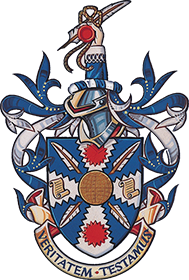Do I need a Notary Public?
- by Megan Diamond
- •
- 19 Mar, 2019
- •
Most people don't know what a Notary Public is until they are told by a foreign lawyer that they need something notarised for use overseas.
You will come across many words and phrases that are often used to describe a Notary Public's service. These are often interchangeable, sometimes misapplied and often confusing. You will read about apostilles, legalisation, acknowledgements, notarisation, certification, authentication
and attestation
(to name just a few).
I receive many queries where I am told that something just needs 'notarising'. This is not the same as getting a document legalised by apostille.
An apostille is a certificate which is attached by the Foreign Commissioners Office which verifies the Notary Public's signature. Some countries (who are not party to the Hague convention) require a further step of legalisation at the Embassy. Some countries use the words interchangeably, when actually you may not need your document to go before an embassy. If you are unsure what is required, I can advise whether an apostille and/or legalisation is needed.
Acknowledgements tend to be used predominantly for US documents. They take shape in a number of prescribed forms. It can be by way of you confirming that your signature is on the document, acknowledging that the contents of a declaration are true or an affirmation. US documents tend to vary from State to State. I am always happy to look over a document to advise what steps are required.
Notarisation tends to be used as a broad term for the service a Notary Public will provide.
Certification and Authentication tend to be general terms where the Notary Public certifies or authenticates that a document is true. Certification is usually a true copy of an original produced before the Notary, without the authenticity verified. Authentication is whereby a Notary Public checks the origin of the document (which could be a degree certificate, a letter from a government body, marriage certificate, letter from a university etc) by liaising with the institution who produced the document and then authenticate that the document is true. Usually a Notary Public will either attest a certificate directly on the document, or attach a separate certificate.
Attestation is also a broad term used. This sometimes can mean that the Notary Public witnesses your signature. Attestations tend to be popular with US documents.
Regardless of what service you require, the Notary Public will have to be content that you have capacity, thoroughly understand what you are signing, and ensure that the document complies with the laws of England and Wales and will also be acceptable in the foreign jurisdiction. I am often told that it is just my signature and seal which is required. Unfortunately this is not the case, there are a number of factors and stages which are required. Please visit my FAQ page for more information on this.
If you have any queries, or would like a no-obligation chat about your requirements, please feel free to contact me.
